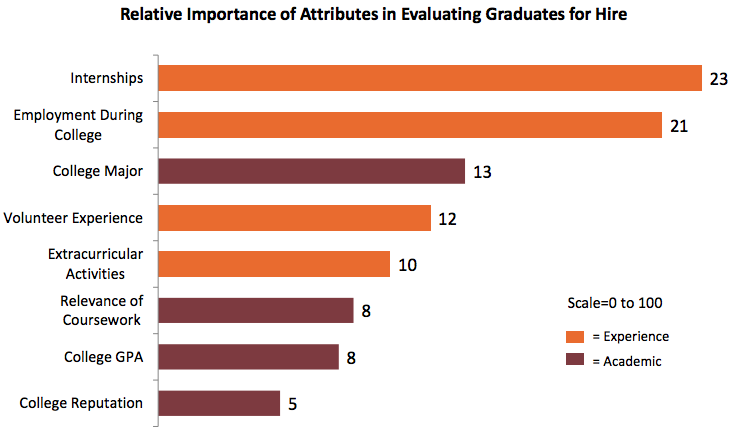Once second semester of junior year rolls around, I find that many students experience a fresh wave of anxiety around their future — and not just months coming up.
It's usually brought on when they are suddenly unable to make it through a conversation without the old question coming up:
What do you plan to study in college?
There are so many ways things can go wrong from there. You toss out that you're considering history and your physician uncle asks what you plan to do with that degree — "What will you do, become a high school history teacher? There's no money in it."
You say that you might want to study art, and your well-meaning parents hesitate just a little too long before voicing their support for "whatever you choose to do." You mention that you're thinking about engineering and then the questions start flying the other way: "Do you know how competitive those programs are?"
Maybe you just don't know — and in admitting it, a nasty little voice inside your head starts telling you that your entire future is about to be decided in the coming months. You're completely unprepared. You’ve been left behind.
Does any of these situations sound familiar? Any way the situation plays out, it can feel like an awful lot of pressure.
Let me send some reassurance your way. With just a few notable exceptions, what you ultimately choose to major in during college has relatively little correlation with the success you'll have in your future field of work.
Here are a few things to remember:
The employers looking to hire you right out of college tend to place more weight on your hands-on work experience. Their thinking is that you completed your degree, which meant succeeding in a range of different courses with a certain level of rigor. They can assume that you have the ability to learn and perform in an academic setting, so chances are that you'll be able to continue learning in a new environment. The big question is whether you can apply what you learn in real-life circumstances — outside the classroom.
The Role of Higher Education in Career Development from the Chronicle of Higher Education in 2012
No matter what you designate as your major, with a liberal arts education, you'll still be exposed to a variety of different subject areas, and along the way, you'll develop skills that will help you succeed no matter what content you're focused on. That has to do not only with your experiences inside the classroom, but also your extracurricular activities and your socializing during college. Those transferrable skills are also highly sought after by employers filling their entry-level positions (see below).
Falling Short? College Learning and Career Success, Association of American Colleges & Universities, 2015
In fact, it can often be that exposure to other, seemingly less relevant subjects that can make workers such assets to their companies. The tech industry has made a strong case for seeking graduates with liberal arts degrees, and it's worth noting that a surprising number of doctors were actually English majors during their undergraduate years.
In terms of salary, it's true that majors in the STEM fields tend to have a higher median salary directly after college graduation than most other majors, given their high degree of specialization. Once you project further into the future, however, things aren't so clear-cut. Studies show that there are clear benefits to completing an advanced degree in terms of earnings, for one. Also, don't forget about the risk to highly technical jobs: automation.
Last thing: you have plenty of time to change your mind. Lots of people do, both during college and afterward, which reflects a broader trend in the number of different jobs more recent graduates hold after college. It requires a different type of preparation than perhaps your parents underwent years ago -- so take what your doctor uncle says with a grain of salt.




